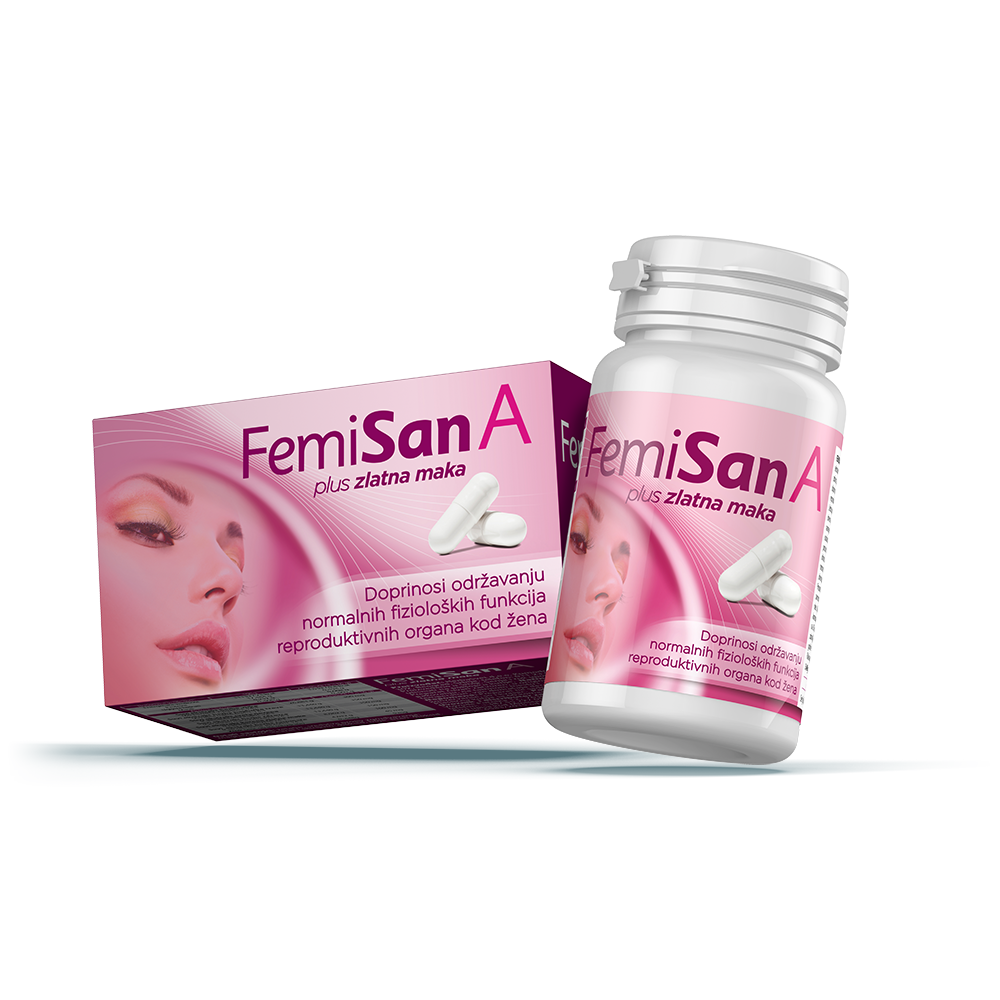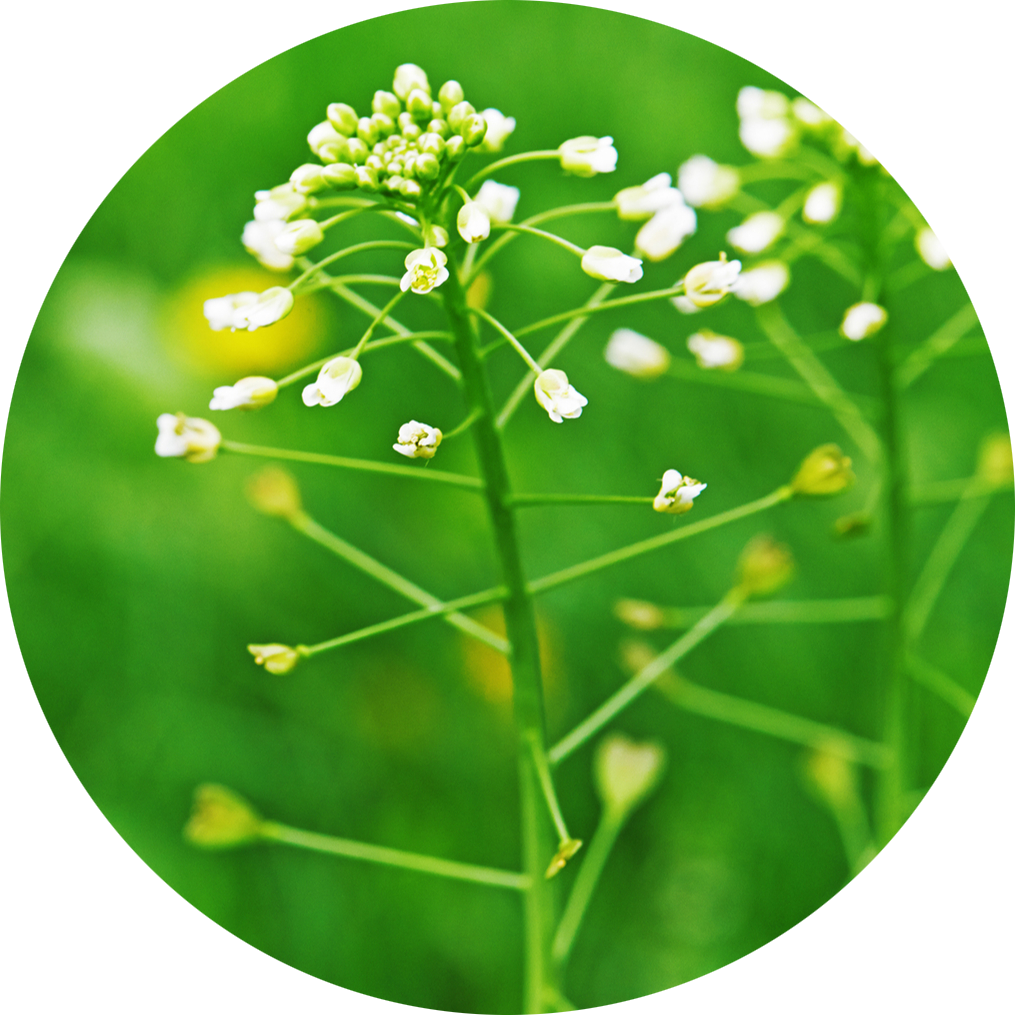(Capsella bursa pastoris)
In our childhood we must have picked it and plucked its heart-shaped leaves while saying “should I, should I not” or “loves me, loves me not”. Shepherd’s purse is another widespread, resistant weed plant, a bit inconspicuous but extremely medicinal. In some languages it is also called “girl’s herb” for a good reason: it has the ability to cure painful menstruation.
Shepherd’s purse starts to bloom with the first spring thaw. Its scientific name is Capsella bursa pastoris, translated as ‘shepherd’s purse’. Although it does not look like its closest relatives, it belongs to the same family that cabbage, horseradish and mustard belong to. Chickens like to graze on it and eggs laid by hens that move freely in the yard and have access to it are natural and healthy. This annual or biennial plant grows abundantly in meadows and around backyards, and its heart-shaped leaves are an indication of how much it can give us. That is why it has always been an indispensable part of our folk medicine.
SHEPHERD’S PURSE AS A MEDICATION
Shepherd’s purse has been proven to be a treasure trove of useful substances: flavonoids, polypeptides, choline, acetylcholine, histamine, carotenoids, glucosinolates and vitamins A, B, C and K. Thanks to peptides that have a haemostatic effect, this plant has a great ability to reduce bleeding, externally and internally, and to soothe inflammation and burns. That is why it is great for heavy and painful menstruation, haemorrhoids, nosebleeds and inflamed bleeding gums.
The European Medicines Agency lists its use in:
- menorrhagia – heavy and prolonged menstrual bleeding dysmenorrhea – painful menstruation
- premenstrual symptoms (PMS) or premenstrual dysphoric disorder (PMDD): cramps, pain, bloating
- high or low blood pressure
- bleeding wounds
- nosebleeds
- bleeding gums
- irritations of urinary organs, frequent urination, cystitis, blood in urine bleeding from the colon, blood in the stool, haemorrhoids, diarrhoea and dysentery
This plant has a proven strong anti-inflammatory effect, and can be a useful therapy for chronic inflammation and oxidative stress that cause a number of health problems, and even replace non-steroidal anti-inflammatory drugs that have negative side effects. In addition to anti-inflammatory effect, shepherd’s purse also has antimicrobial, anticancer, hepatoprotective and sedative effects and beneficial effects on our cardiovascular and reproductive systems.
PLANT FOR WOMEN’S HEALTH
Menorrhagia, hyper-menorrhoea or excessive menstrual bleeding is the one that lasts longer than seven days and results in the loss of more than 80ml of blood. Statistics say that it affects as many as 20 percent of women, something that not only impairs the quality of life, but can also cause serious anaemia. One triple-blind randomised study followed women with this problem and divided them into two groups: one group received capsules with shepherd’s purse extract, the other only a placebo. A significant average reduction in bleeding was observed in the first group at the end of the study. Another study followed a group of women with the same problem: one group received 500mg of mefenamic acid (a non-steroidal anti-inflammatory drug) and a hydroalcoholic extract of shepherd’s purse, while another received the same drug and a placebo instead of shepherd’s purse. The conclusion after two menstrual cycles was that the level of bleeding was significantly reduced in the group that took shepherd’s purse.
In addition to having a beneficial effect on menstrual flows, shepherd’s purse can also stop uterine prolapse, strengthen it and help recovery after childbirth. A study that followed 100 women after natural delivery found that bleeding was significantly reduced in those who used shepherd’s purse extract. This medicinal plant will revitalise and strengthen the uterus after childbirth, prevent prolonged bleeding and accelerate the healing of birth wounds.
Shepherd’s purse compressions are a great help to breastfeeding women: handkerchiefs soaked in its decoction and placed on the breast bring a soothing feeling of relief. This medicinal plant is also useful for women who are entering menopause; it calms heartbeat, strengthens the heart, lowers blood pressure and is excellent for angina pectoris and varicose veins. It also has a good effect on the urinary tract, it soothes an inflamed bladder and is used as treatment for hematuria (blood in urine), internal bleeding from the stomach, intestines, kidneys or bladder, bleeding from the gums, haemorrhoids, diarrhoea… It does not only strengthen muscles of our internal organs, but can also be applied externally: when massaged into weak and painful muscles its tincture strengthens their tone, which is especially recommended during recovery from limb fractures, after cast removal for example.
SHEPHERD’S PURSE – INFUSION OR TINCTURE?
Shepherd’s purse has healing properties when prepared as an infusion, when used in a bath, in compressions, in the form of tincture – liquid extract (drops), or dry extract in capsules, and since it is edible, its leaves can also be used in salads. In fact, shepherd’s purse is a common ingredient used in Far Eastern cuisine. In China, it is called cicai (jìcài) and is widely used with rice dishes and for filling wonton dumplings. In Japan, nazuna is always used during the Festival of Seven Herbs (Nanakusa no sekku) which is held on 7th January every year to invoke longevity, health and drive away evil. As the Japanese belong to the longest-lived, slimmest and healthiest nations, it is possible that shepherd’s purse is partly responsible for this.
This extremely useful plant for women is part of Femisan A capsules, a natural formula that contributes to maintaining normal physiological functions of female reproductive organs and helps with ovarian cysts, PCOS, fibroids, menstrual disorders, PMS, sores on the cervix… When we ask ourselves – “loves me, loves me not” – we should have no doubt when it comes to shepherd’s purse. It does not dilly-dally when it comes to our health – it does its best to look after it.

